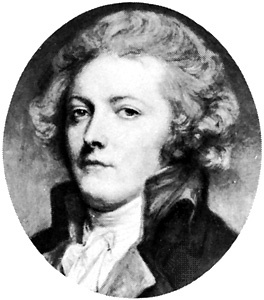Fabre d'Églantine, Philippe
French dramatist
in full Philippe-François-Nazaire Fabre d'Églantine
born July 28, 1750, Carcassonne, France
died April 5, 1794, Paris
 French political dramatic satirist and prominent figure in the French Revolution; as deputy in the National Convention he voted for the death of Louis XVI.
French political dramatic satirist and prominent figure in the French Revolution; as deputy in the National Convention he voted for the death of Louis XVI.He added the appellation d'Églantine to his surname, Fabre, after falsely claiming that he had won a golden eglantine in a literary competition. After publishing the poem Étude de la nature (1783; “Study of Nature”), he wrote many comedies, the most celebrated—Le Philinte de Molière (1790), a sequel to Molière's Misanthrope—in which the major characters are drawn as a politically dangerous aristocrat and a virtuous Republican. His best-known work is the song "Il pleut, il pleut, bergère" (“It's raining, it's raining, shepherdess”), a song which French children still sing today.
Drawing on his poetic talents, Fabre invented the names for the months of the Revolutionary calendar (French republican calendar) adopted in October 1793. By then, he was becoming entangled in the murkier aspects of revolutionary politics. His denunciation of a “foreign plot” against the Republic set off a barrage of accusations that heightened revolutionary paranoia and made him many enemies. The discovery that he had falsified a key document affecting the liquidation of the French East India Company led to his downfall. He was included in the 1794 trial of the Dantonists and executed on April 5.
- Eisenman, Peter
- Eisenstadt
- Eisenstaedt, Alfred
- Eisenstein, Ferdinand Gotthold Max
- Eisenstein, Sergey Mikhaylovich
- Eisleben
- Eisner, Kurt
- Eisstockschiessen
- eisteddfod
- Eitner, Robert
- ejaculation
- ejaculatory duct
- ejectment
- ejido
- Ejmiadzin
- Ejnar Hertzsprung
- Ejnar Mikkelsen
- E.J. Pratt
- Ekeberg, Anders Gustav
- Ekelöf, Gunnar
- Ekhof, Konrad
- Ekibastuz
- E. Kirby-Smith
- ekistics
- Ekkehard I the Elder